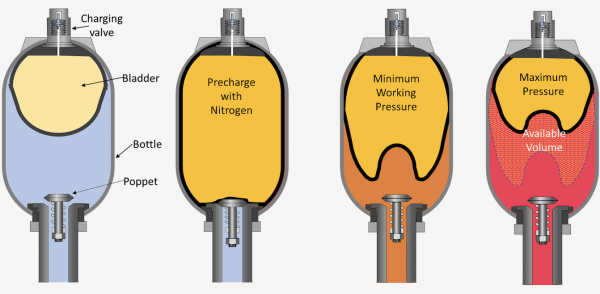Raising the bar: Memes to an End
By Dan Helgerson, Fluid Power Journal Technical Editor

Merriam-Webster defines meme as a noun meaning “an idea, behavior, style, or usage that spreads from person to person within a culture.” It was originally coined by Richard Dawkins in 1976 in his errant attempt to explain everything within a framework of evolutionary processes, including changes in culture. Dawkins wrote, “Memes (discrete units of knowledge, gossip, jokes, and so on) are to culture what genes are to life. Just as biological evolution is driven by the survival of the fittest genes in the gene pool, cultural evolution may be driven by the most successful memes.”
Some ideas spread through a culture to such a degree that they are simply assumed to be true. An irony is that Dawkins’ concept of evolution is itself the result of a successful meme. His premise is assumed to be true even though both reason and observation deny its validity.
However, his concept of memes as they relate to culture may have some merit. I would like to introduce the word “meme” as a verb defined as “the introduction of an idea, behavior, style, or usage with the intent to spread the idea from person to person within a culture.” I plan to meme an idea in the fluid power community that will become so prevalent that it goes without saying.
This is the intent of “Raising the bar” – to look closely at our memes regarding fluid power, challenge our assumptions, and develop a new meme.
Fluid Power Journal published an article I wrote in August 2019 titled “Then and Now: Looking Back/Forward 25 Years.” In it, I quoted Peter Achten of the Dutch engineering firm Innas BV. In a 2014 presentation on innovation, he said, “Innovation starts with imagination: to imagine an ideal concept, without even knowing how this concept can be realized or materialized.” He also said, “Some of the best innovations are simple. But they should never be ordinary, trivial, and – most and for all – not asked for by the market.”
To some degree, “the market” is the product of successful memes. This is how it is done, and we only accept incremental improvements that will not disrupt our thinking or our processes.
Innovations usually come in spite of memes not because of them. When we accept an axiom as truth, we are unlikely to explore contradictory ideas. In fact, we resist an idea that challenges what we think we know. We are often limited by our knowledge because we assume our knowledge is complete. What we assume we know may actually be a successful meme, that is, an idea that ought to be examined. I’m not saying all successful memes are wrong, but we need to be open to the possibilities that may emerge as we challenge them.
Take a look at some memes that have been accepted in the fluid power community and are no longer questioned. Not all are wrong, and some are just incomplete. I hope to use “Raising the bar” as a place where we can think deeply and maybe even change our minds.
Successful memes include: Fluid power is inefficient. Hydraulic systems are messy. Hydraulic pumps are noisy. Air is free. Variable displacement pumps are more efficient than fixed displacement pumps. Flow means go. Pressure produces force, not speed. Accumulators save energy. Load-sensing pumps don’t waste energy. Pressure-reducing valves save energy. Pressure regulators save energy.
I want to meme the idea that the transfer of energy by means of a fluid, whether hydraulic or pneumatic, does not have to be inefficient, messy, or noisy.
I really meme it!
Fluid Power Journal encourages conversation about issues addressed in “Raising the bar.” Please use the Comment function at the bottom of the page to take part in the discussion with author Dan Helgerson.
Share this information.
Related Posts
Get Our Enews!
Fluid Power Journal Resources







